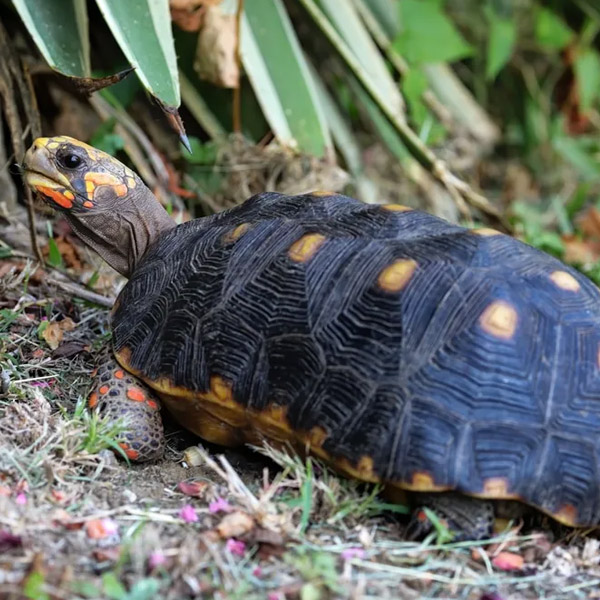Red-Footed Tortoise
Chelonoidis carbonaria

Animal Ambassadors
Khaleesi
The red-footed tortoise is a small tortoise species native to South America. They are highly omnivorous, eating a wide variety of fruits, grasses, fungi, insects, and small vertebrates. The majority of their diet consists of fruits and seed pods. After the fruit is eaten, the seeds are passed and often germinate, giving red-footed tortoises an important role in the seed dispersal process. These reptiles have been seen stationary at the base of fruit trees, perhaps waiting for ripe fruit to fall! Although more active than most of their desert counterparts, red-footed tortoises still spend about half of their time resting. Sometimes they will be inactive for days after a large meal, with one individual reportedly staying in the same spot for over a month! These tortoises display several types of semi-social behavior, including communal use of shelters, lack of aggression at shared feeding sites, and home range overlaps. Interestingly, they will also frequently follow each other and will also follow scent trails left by other red-foots. Unfortunately, like many tortoise species, red-foots are vulnerable to extinction due to poaching for the pet trade. They are also threatened by hunting, habitat destruction, and urbanization.
Fruit, seed pods, grasses, flowers, roots, invertebrates, carrion, snakes, rodents
Parts of Central & South America, primarily around the Amazon Basin
20-40 years / Up to 50 years
Grasslands, savannahs, open forests
10-15 inches
Up to 30 lbs
